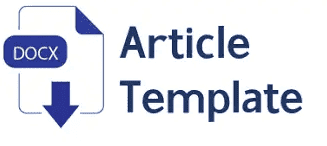Analysis of the Effectiveness of Adaptive Governance in Managing Natural Resource Conflicts (The Case of Mining in the Sorowako Region)
DOI:
https://doi.org/10.71435/639058Keywords:
Adaptive Governance, Natural Resource Conflicts, Stakeholder Satisfaction, Sorowako RegionAbstract
Purpose: This examine investigates the dynamics of adaptive governance in dealing with herbal useful resource conflicts, focusing at the Sorowako vicinity's mining sports activities.
Subjects and Methods: Through a mixed-techniques method, which includes descriptive information, paired-samples t-checks, regression analyses, ANCOVA, and Pearson correlational analyses, the research explores stakeholder pleasure and governance effectiveness.
Results: Findings display screen the pivotal roles of community participation, institutional collaboration, and stakeholder engagement in enhancing adaptive governance mechanisms. Significant close by variations in stakeholder delight underscore the need for context-precise processes.
Conclusions: The test contributes insights to useful aid management and emphasizes the significance of inclusive decision-making strategies.
References
Acuña, R. M. (2015). The politics of extractive governance: Indigenous peoples and socio-environmental conflicts. The extractive industries and society, 2(1), 85-92. https://doi.org/10.1016/j.exis.2014.11.007
Ahmad, I., & Islam, M. R. (2024). Navigating the Challenges: Ethical Dilemmas in Community Development. In Building Strong Communities: Ethical Approaches to Inclusive Development (pp. 69-89). Emerald Publishing Limited. https://doi.org/10.1108/978-1-83549-174-420241004
Bisth, S. (2023). Strategies for Success in Business Administration: Navigating the Complex Landscape of Corporate Management. Journal Dimensie Management and Public Sector, 4(4), 17-23. https://doi.org/10.48173/jdmps.v4i4.242
Coley, C. W., Eyke, N. S., & Jensen, K. F. (2020). Autonomous discovery in the chemical sciences part II: outlook. Angewandte Chemie International Edition, 59(52), 23414-23436. https://doi.org/10.1002/anie.201909989
Colfer, C. J. P., Minarchek, R. D., Cairns, M., Aier, A., Doolittle, A., Mashman, V., ... & Van Esterik, P. (2015). Gender analysis: Shifting cultivation and indigenous people. In Shifting Cultivation and Environmental Change (pp. 920-957). Routledge.
Corrales-Estrada, A. M., Gómez-Santos, L. L., Bernal-Torres, C. A., & Rodriguez-López, J. E. (2021). Sustainability and resilience organizational capabilities to enhance business continuity management: A literature review. Sustainability, 13(15), 8196. https://doi.org/10.3390/su13158196
Cosens, B. A., Craig, R. K., Hirsch, S. L., Arnold, C. A. T., Benson, M. H., DeCaro, D. A., ... & Schlager, E. (2017). The role of law in adaptive governance. Ecology and society: a journal of integrative science for resilience and sustainability, 22(1), 1. https://doi.org/10.5751/ES-08731-220130
Csevár, S. (2021). Voices in the background: environmental degradation and climate change as driving forces of violence against indigenous women. Global studies quarterly, 1(3), ksab018.
Dehaine, Q., Tijsseling, L. T., Glass, H. J., Törmänen, T., & Butcher, A. R. (2021). Geometallurgy of cobalt ores: A review. Minerals Engineering, 160, 106656. https://doi.org/10.1016/j.mineng.2020.106656
Ericsson, M., Löf, A., Löf, O., & Müller, D. B. (2023). Cobalt: corporate concentration 1975–2018. Mineral Economics, 1-15.Feliciano, D., Recha, J., Ambaw, G., MacSween, K., Solomon, D., & Wollenberg, E. (2022). Assessment of agricultural emissions, climate change mitigation and adaptation practices in Ethiopia. Climate policy, 22(4), 427-444. https://doi.org/10.1080/14693062.2022.2028597
Felton, K. C., Rittig, J. G., & Lapkin, A. A. (2021). Summit: benchmarking machine learning methods for reaction optimisation. Chemistry‐Methods, 1(2), 116-122. https://doi.org/10.1007/s13563-023-00391-1
Fernandes-Jesus, M., Brendon, B., & Diniz, R. F. (2020). Communities reclaiming power and social justice in the face of climate change. Community Psychology in Global Perspective, 6(2/2), 1-21.
Fox, N. J., & Alldred, P. (2020). Sustainability, feminist posthumanism and the unusual capacities of (post) humans. Environmental Sociology, 6(2), 121-131. https://doi.org/10.1080/23251042.2019.1704480
Lema, D., & Vasquez, A. (2022). Forced Displacement of Indigenous Peoples in the Amazon Caused by Environmental Hardship: a Case for Human Security. Peace Human Rights Governance, 6(Peace Human Rights Governance 6/2), 159-180. https://doi.org/10.14658/PUPJ-PHRG-2022-2-4
Menton, M., Larrea, C., Latorre, S., Martinez-Alier, J., Peck, M., Temper, L., & Walter, M. (2020). Environmental justice and the SDGs: from synergies to gaps and contradictions. Sustainability Science, 15, 1621-1636. https://doi.org/10.1007/s11625-020-00789-8
Muboko, N. (2017). The role of transfrontier conservation areas and their institutional framework in natural resource-based conflict management: A review. Journal of Sustainable Forestry, 36(6), 583-603. https://doi.org/10.1080/10549811.2017.1320224
Mvile, B. N., & Bishoge, O. K. (2024). Mining and sustainable development goals in Africa. Resources Policy, 90, 104710. https://doi.org/10.1016/j.resourpol.2024.104710
Novoselov, A., Potravnii, I., Novoselova, I., & Gassiy, V. (2016). Conflicts management in natural resources use and environment protection on the regional level. Journal of Environmental Management & Tourism, 7(3 (15)), 407-415.
Owonikoko, S. B., & Momodu, J. A. (2020). Environmental degradation, livelihood, and the stability of Chad Basin Region. Small Wars & Insurgencies, 31(6), 1295-1322. https://doi.org/10.1080/09592318.2020.1776092
Richnák, P., & Gubová, K. (2021). Green and reverse logistics in conditions of sustainable development in enterprises in Slovakia. Sustainability, 13(2), 581. https://doi.org/10.3390/su13020581
Ros-Tonen, M. A., & Derkyi, M. (2018). Conflict or cooperation? Social capital as a power resource and conflict mitigation strategy in timber operations in Ghana’s off-reserve forest areas. Ecology and Society, 23(3).
Schultz, L., Folke, C., Österblom, H., & Olsson, P. (2015). Adaptive governance, ecosystem management, and natural capital. Proceedings of the National Academy of Sciences, 112(24), 7369-7374. https://doi.org/10.1073/pnas.1406493112
Shiquan, D., Amuakwa-Mensah, F., Deyi, X., Yue, C., & Yue, C. (2022). The impact of mineral resource extraction on communities: How the vulnerable are harmed. The Extractive Industries and Society, 10, 101090. https://doi.org/10.1016/j.exis.2022.101090
Tarigan, Z. J. H., Siagian, H., & Jie, F. (2021). Impact of internal integration, supply chain partnership, supply chain agility, and supply chain resilience on sustainable advantage. Sustainability, 13(10), 5460. https://doi.org/10.3390/su13105460
Temitope, T. (2023). Investigating innovative models of governance and collaboration for effective public administration in a multi-stakeholder landscape. International Journal Papier Public Review, 4(2), 18-28. https://doi.org/10.47667/ijppr.v4i2.209
Vella, K., Sipe, N., Dale, A., & Taylor, B. (2015). Not learning from the past: adaptive governance challenges for Australian natural resource management. Geographical Research, 53(4), 379-392. https://doi.org/10.1111/1745-5871.12115
Viale Pereira, G., Estevez, E., Cardona, D., Chesñevar, C., Collazzo-Yelpo, P., Cunha, M. A., ... & Scholz, R. W. (2020). South American expert roundtable: increasing adaptive governance capacity for coping with unintended side effects of digital transformation. Sustainability, 12(2), 718. https://doi.org/10.3390/su12020718
Wang, Y., & Qi, S. (2022). Competition and monopoly in digital economy ecology. Available at SSRN 3854529.
Wang, Z., Chu, E., & Hao, Y. (2024). Towards sustainable development: How does ESG performance promotes corporate green transformation. International Review of Financial Analysis, 91, 102982. https://doi.org/10.1016/j.irfa.2023.102982






